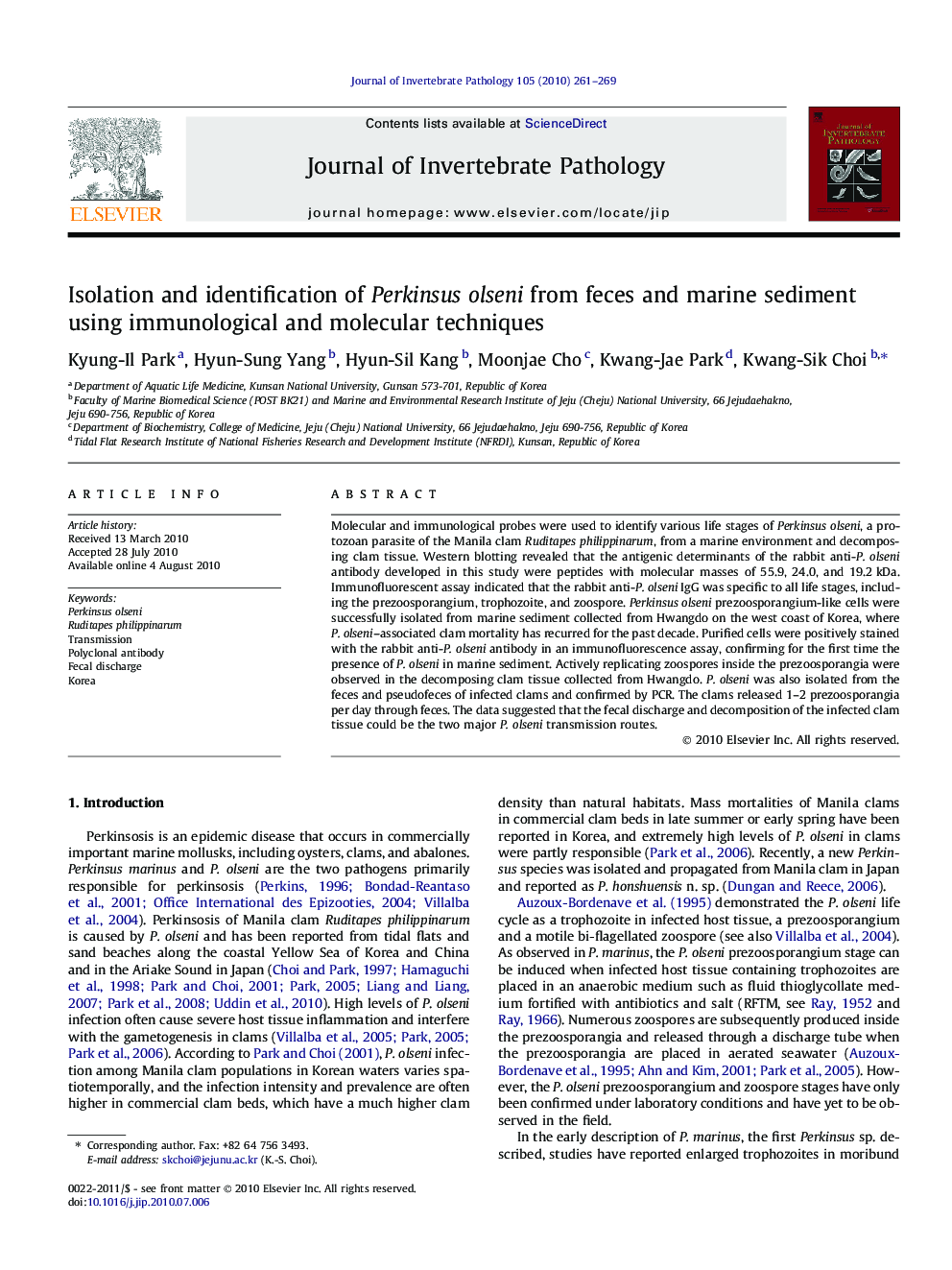| Article ID | Journal | Published Year | Pages | File Type |
|---|---|---|---|---|
| 4558169 | Journal of Invertebrate Pathology | 2010 | 9 Pages |
Molecular and immunological probes were used to identify various life stages of Perkinsus olseni, a protozoan parasite of the Manila clam Ruditapes philippinarum, from a marine environment and decomposing clam tissue. Western blotting revealed that the antigenic determinants of the rabbit anti-P. olseni antibody developed in this study were peptides with molecular masses of 55.9, 24.0, and 19.2 kDa. Immunofluorescent assay indicated that the rabbit anti-P. olseni IgG was specific to all life stages, including the prezoosporangium, trophozoite, and zoospore. Perkinsus olseni prezoosporangium-like cells were successfully isolated from marine sediment collected from Hwangdo on the west coast of Korea, where P. olseni–associated clam mortality has recurred for the past decade. Purified cells were positively stained with the rabbit anti-P. olseni antibody in an immunofluorescence assay, confirming for the first time the presence of P. olseni in marine sediment. Actively replicating zoospores inside the prezoosporangia were observed in the decomposing clam tissue collected from Hwangdo. P. olseni was also isolated from the feces and pseudofeces of infected clams and confirmed by PCR. The clams released 1–2 prezoosporangia per day through feces. The data suggested that the fecal discharge and decomposition of the infected clam tissue could be the two major P. olseni transmission routes.
